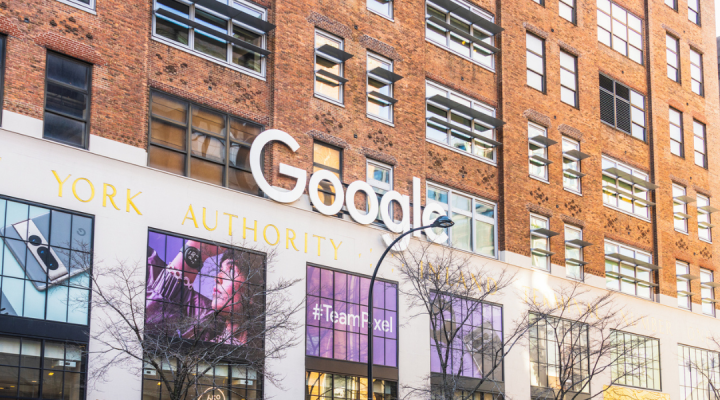Entertainment 2020: Blockbusters or silence on set?

We have been on a global streaming binge - Netflix Apple TV+ Amazon Prime Video, Disney+ HBO Max and Quibi.... But by late 2020 will there be anything left to watch? How are TV and film producers powering up again, will Amazon buy a cinema chain, who is winning in the streaming wars, and what about music? Our panel discussed the industry everyone engages with every day.
The panelists:
Cathy Payne - CEO, Banijay Rights
David Hancock - Director of Film & Cinema at market information firm OMDIA, global industry analyst
Jens Meurer - multi-award-winning film producer and director at Egoli Tossell Films, Berlin.
Alex Connock - University of Oxford, Saïd Business School Fellow in Marketing practice
The panel was led by Andrew Stephen, L’Oreal Professor of Marketing, Saïd Business School
Summary
Can the entertainment industry weather the Covid-19 storm? Three expert panellists from cinema, TV and film gave their views.
-
Coronavirus has seen a viewing boom on standard streaming platforms (Netflix, Amazon Prime Video, BBC iPlayer) a proliferation of new ones (Quibi, NBC Peacock) and a resurgence of broadcast TV ratings (with many shows 25% or more up)
-
Content production globally has been severely impacted but is set to restart in June and July, for instance with series four of the Netflix hit Money Heist.
-
Major new films such as Christopher Nolan’s thriller Tenet, Top Gun 2 and the new Bond film No Time to Die will remain in cinemas and not sell first distribution to streamers, because the economics of that would not be competitive
-
Cinema is declining in Europe and the US, but that decline has been outstripped by Asia, and well over 70,000 screens in China, a 20-fold increase since 2007
On 10 June 2020 Andrew Stephen, L’Oréal Professor of Marketing introduced a panel discussion led by Alex Connock, Fellow in Management Practice and media industry veteran. On the panel were David Hancock, Director at global technology research company Omdia; film producer Jens Meurer (Black Book, Rush, The Last Station, Carlos the Jackal, Filth, Russian Ark, The Exception) and Cathy Payne, Chief Executive at Endemol Shine International Limited (distributor of titles such as Survivor, Temptation Island, SAS Who Dares Wins, The Crystal Maze, Wife Swap, Versailles, The Inbetweeners.)
Professor Stephen began by reminding viewers of the unprecedented situation the entertainment industry faces in 2020. ‘Everything has changed. Movie sets have closed down from Hollywood to Bollywood and everywhere in between,’ he said.
Alex Connock kicked off his ‘fast and furious look at the world of entertainment’ by setting out three topics the panel would discuss: ‘streaming wars,’ cinemas, and film and TV production.
The panel quickly put paid to a common misconception about the cinema industry – it is far from dying and was growing rapidly in many parts of the world pre-pandemic. Most notably in China, where the number of screens had risen from 1000 in 2005, to over 70,000 today.
But how would the industry cope with post-lockdown restrictions? Hancock predicted that cinema chains would increase the number of screens a film was shown on and each film would be shown for longer.
While discussing the ‘streaming wars’ – the competition between streaming services such as Netflix and Amazon prime – Connock asked: why would films like the upcoming James Bond and Mission Impossible releases, not simply be sold to Netflix?
‘They won’t give you 1.1b dollars for it,’ replied Hancock. ‘You don’t get the same value creation releasing something straight into a home entertainment system.’
For film producers, the impact of the pandemic will be felt next year, according to Jens Meurer. Responding to Hancock’s prediction, he stated: ‘To imagine all cinemas in the future will be multiplexed showing one Avengers film on ten different screens because of social distancing leaves me horrified. But if that’s all that’s left standing… we’ll be wiped out.’
However, Meurer asserted that he did not think this would happen because after months of lockdown, people were longing for the ‘communal experience of cinema.’ And if the film industry changes in response to the rise of streaming platforms, it will likely become more ‘contained’ and premium, he said.
When it came to TV production the panel described an industry that was overburdened with demand. Connock cited a survey which found 63% of Britons are watching more TV since lockdown began. Cathy Payne described how the amount of investment needed to make a hit show was increasing. Given these pressures how did she know when a project would be a hit?
‘You have an instinct just from experience and looking at what’s in the market,’ replied Cathy. ‘But the truth is you never know. If it were easy to know you would never have shows that lose money. But there are basic things you go through – who’s the creative involved? What’s the available audience you are trying to reach?’
As Connock drew the discussion to a close, Hancock offered a final thought on entertainment in 2020: ‘Cinema is going to lose over half of its business this year, maybe a little bit more. It could lose about 30-35 billion dollars,’ he said. ‘We are going to see a re-imagining of cinema but in a cheaper form. For me, cinema is the bedrock of movies, and is still the best place to see a film.’
Key takeaway:
Western countries might perceive cinema as a dying medium, but in other parts of the world, it has been flourishing. The pandemic will impact profits, but there is no sign of the industry disappearing. However, in order to flourish again, it will have to adapt to the new conditions it faces.




